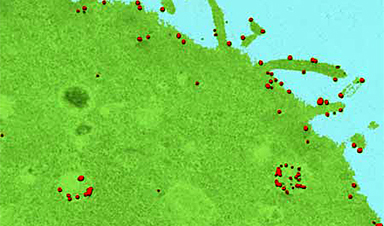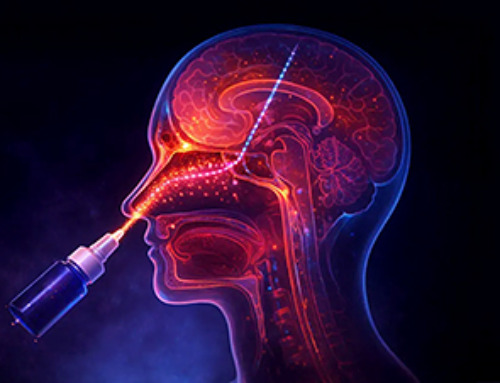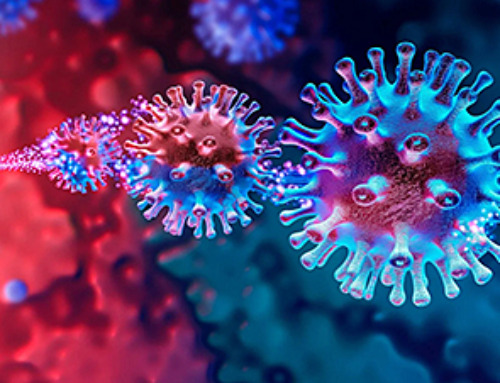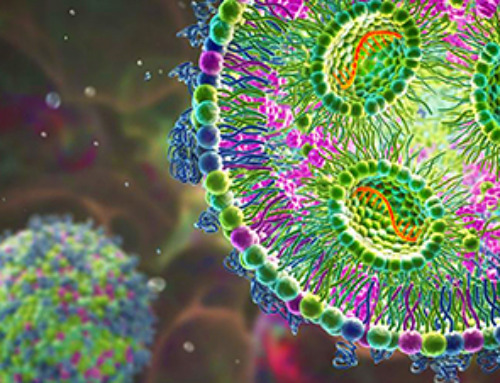With targeted drug and gene therapies, finding the target cells is only half the battle. Once these agents reach a cell’s surface, they still have to get inside and do their job.
University of Illinois researchers say they now know how to track and map drug and gene delivery vehicles to evaluate which are most effective at infiltrating cells and getting to their targets, insight that could guide development of new pharmaceutical agents. The researchers described their tracking system and their findings on the most effective delivery vehicles in the journal Nature Communications (“Single quantum dot tracking reveals the impact of nanoparticle surface on intracellular state”).
Gene therapies have shown promise in cell culture and animal studies but have been less effective in clinical trials, said study leader Andrew Smith, a professor of bioengineering at the U. of I. This class of pharmaceuticals, called biologics, are different from traditional drugs in that they need to be attached to specialized delivery agents, such as nanoparticles or proteins, to reach their intended cellular targets.
Their lack of efficacy stems from their difficulty in reaching targets within cells, and the obstacles hampering them are poorly understood, Smith said.
“We have these really great models that tell us how classical drugs work, but there’s no model that works for these new biologics that have to have some additional mechanism to deliver to cells. This has been a key missing part of pharmaceutical medicine,” Smith said. “If we don’t understand the mechanisms of the problem, we can’t solve it. Now we can pinpoint why that happens and figure out how to overcome the key bottlenecks, which has never been possible.”
Image Credit: Andrew Smith
News This Week
Miller School Researchers Pioneer Nanovanilloid-Based Brain Cooling for Traumatic Injury
A multidisciplinary team at the University of Miami Miller School of Medicine has developed a breakthrough nanodrug platform that may prove beneficial for rapid, targeted therapeutic hypothermia after traumatic brain injury (TBI). Their work, published in ACS [...]
COVID-19 still claims more than 100,000 US lives each year
Centers for Disease Control and Prevention researchers report national estimates of 43.6 million COVID-19-associated illnesses and 101,300 deaths in the US during October 2022 to September 2023, plus 33.0 million illnesses and 100,800 deaths [...]
Nanomedicine in 2026: Experts Predict the Year Ahead
Progress in nanomedicine is almost as fast as the science is small. Over the last year, we've seen an abundance of headlines covering medical R&D at the nanoscale: polymer-coated nanoparticles targeting ovarian cancer, Albumin recruiting nanoparticles for [...]
Lipid nanoparticles could unlock access for millions of autoimmune patients
Capstan Therapeutics scientists demonstrate that lipid nanoparticles can engineer CAR T cells within the body without laboratory cell manufacturing and ex vivo expansion. The method using targeted lipid nanoparticles (tLNPs) is designed to deliver [...]
The Brain’s Strange Way of Computing Could Explain Consciousness
Consciousness may emerge not from code, but from the way living brains physically compute. Discussions about consciousness often stall between two deeply rooted viewpoints. One is computational functionalism, which holds that cognition can be [...]
First breathing ‘lung-on-chip’ developed using genetically identical cells
Researchers at the Francis Crick Institute and AlveoliX have developed the first human lung-on-chip model using stem cells taken from only one person. These chips simulate breathing motions and lung disease in an individual, [...]
Cell Membranes May Act Like Tiny Power Generators
Living cells may generate electricity through the natural motion of their membranes. These fast electrical signals could play a role in how cells communicate and sense their surroundings. Scientists have proposed a new theoretical [...]
This Viral RNA Structure Could Lead to a Universal Antiviral Drug
Researchers identify a shared RNA-protein interaction that could lead to broad-spectrum antiviral treatments for enteroviruses. A new study from the University of Maryland, Baltimore County (UMBC), published in Nature Communications, explains how enteroviruses begin reproducing [...]














Leave A Comment